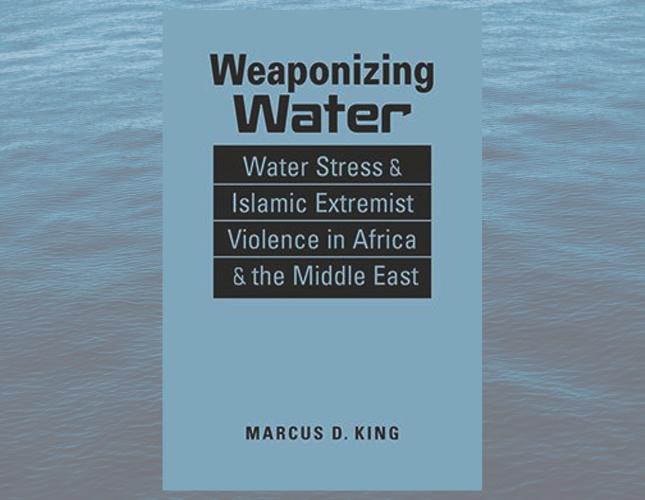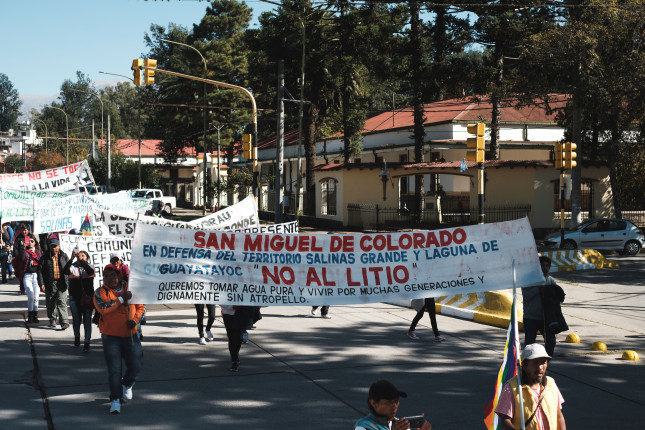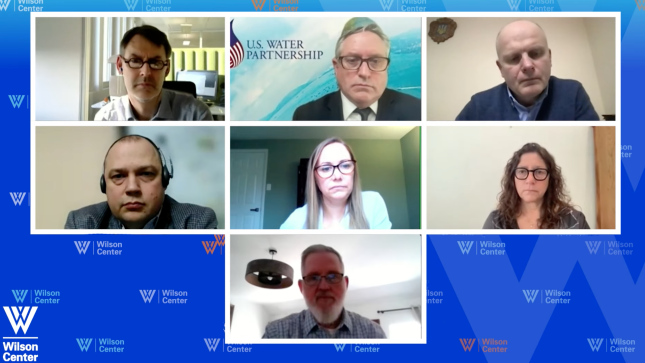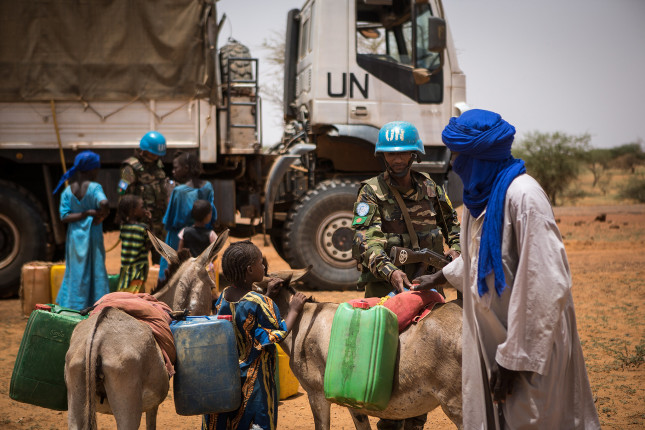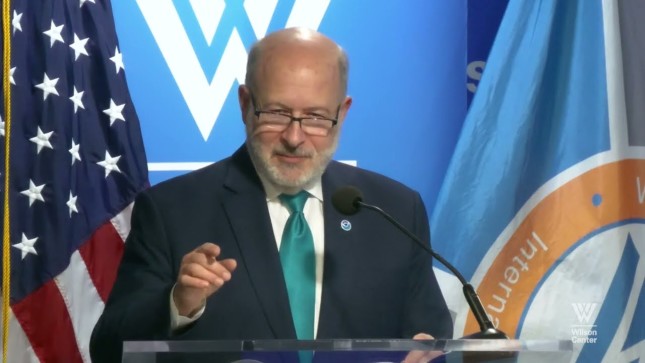-
Book Preview: “Weaponizing Water” by Marcus D. King
›By 2050, two-thirds of the population will face some form of water stress. As a fundamental part of life, water—or a lack of it—influences other parts of life, including conflict. In fact, as author Marcus King notes in his new book, Weaponizing Water: Water Stress and Islamic Extremist Violence in Africa and the Middle East, there is a “correlation between the spheres of influence of violent extremist organizations (VEOs) and the driest lands or areas of sparse vegetation in some of the most arid regions on earth.”
-
Gravity and Hope in Environmental Peacebuilding: Two Young Leaders Share Their Stories
› In today’s episode of the New Security Broadcast, ECSP’s Claire Doyle partnered with Elsa Barron at the Center for Climate and Security for a conversation with two young leaders who are working to tackle climate change and build peace: Christianne Zakour and Hassan Mowlid Yasin. Christianne is a volunteer with UNEP’s Major Group for Children and Youth and Hassan is co-founder of the Somali Greenpeace Association. On the episode, Christianne and Hassan share about the climate, equity, and conflict issues that motivate their work and describe how they think we can make progress towards a livable future for all.
In today’s episode of the New Security Broadcast, ECSP’s Claire Doyle partnered with Elsa Barron at the Center for Climate and Security for a conversation with two young leaders who are working to tackle climate change and build peace: Christianne Zakour and Hassan Mowlid Yasin. Christianne is a volunteer with UNEP’s Major Group for Children and Youth and Hassan is co-founder of the Somali Greenpeace Association. On the episode, Christianne and Hassan share about the climate, equity, and conflict issues that motivate their work and describe how they think we can make progress towards a livable future for all. -
Climate Security and Critical Minerals Mining in Latin America: How Can Business Help?
›Guest Contributor // March 7, 2023 // By Héctor Camilo Morales Muñoz, Johanna Dieffenbacher, Raquel Munayer & Beatrice Mosello
The amount of critical minerals required to develop low-carbon energy technologies is predicted to be six times higher than what is needed today. Yet meeting this demand is necessary to enable a global transition that will address climate change and comply with agreements such as the European Green New Deal.
-
Water and Conflict: Updates from the Russia-Ukraine War
›
The first anniversary of Russia’s invasion of Ukraine is also a reminder of the long-term challenges faced by that embattled country, including one of the most important resources for human survival: water.
“For Ukrainians, water has been under fire for nearly a decade,” observed Erika Weinthal, Professor of Environmental Policy and Public Policy at Duke University, at a recent Water @ Wilson Series event: “Water and Conflict: Updates from the Russia-Ukraine War,” co-hosted by the U.S. Water Partnership.
-
Arms Are Not Enough: Solutions for the Sahel Must Consider Climate
›
On February 25, Nigeria will begin voting for its new president in one of the most tightly fought elections in decades. And the most likely winner has already set down a marker in his campaign. “You can’t be talking about climate change when people are taking cover from bombs,” observed Nigerian presidential hopeful Peter Obi.
-
Environmental Management: A Critical Tool for Environmental Peacebuilding
›
On July 28, 2022 the United Nations General Assembly (UNGA) voted—by a count of 161 in favor, with 8 abstentions — that living in a clean, healthy, and sustainable environment is a human right. Building on the similar declaration by the UN Human Rights Council in October 2021, the UNGA has now reinforced the notion that the growing assaults on human health through environmental hazards are transgressions against the basic rights and freedoms of people.
-
Water @ Wilson Event | Water, Peace, & Security: New Tools for a New Climate
›Water sustains life on our planet. And access to clean and safe water is foundational to society. So why has it only been in recent years that water has risen to the top of discussions of climate and security? Richard W. Spinrad, the Under Secretary of Commerce for Oceans and Atmosphere and NOAA Administrator, says that one of the biggest reasons is the major impact that climate-related changes in precipitation like droughts and extreme rainfall are having across the globe: “We’re starting to see things like we’ve never seen before. The nature of storms is changing: We saw five feet of rain fall in Hurricane Harvey. Five feet.”
-
Climate Change and Ecological Security
›
As climate change is increasingly recognized as a security issue, a parallel understanding is also developing. Traditional categories and approaches may not be the optimal way to address the threats posed by climate impacts.
The nation states and international institutions at the center of security discussions now are shifting their approach. For instance, the U.S. has affirmed and moved to institutionalize its commitment to address the national security implications of climate change under the Biden Administration. In doing so, it is joining an increasing number of other nation-states (the UK, France, Sweden, Germany and New Zealand) that have also developed institutional arrangements and plans for their national response to climate insecurity.
Showing posts from category security.


